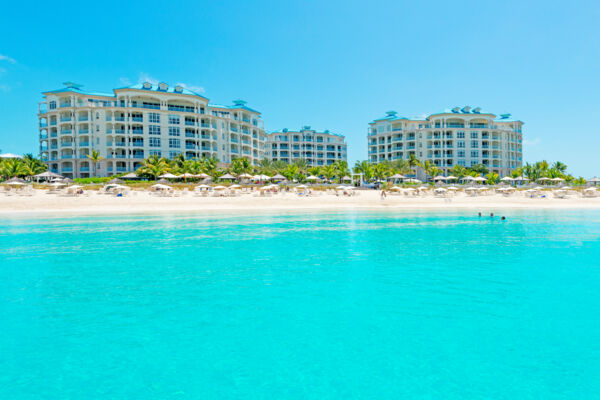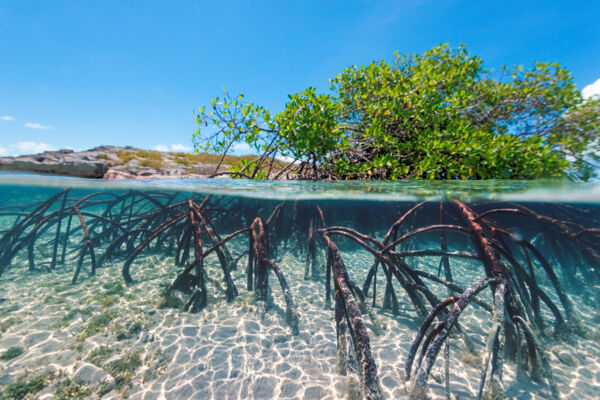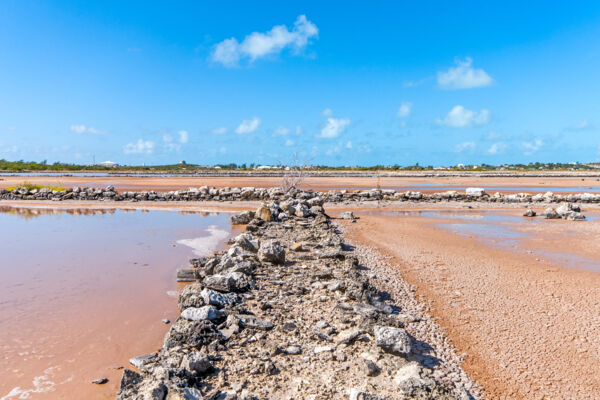Turks and Caicos Financial Services







The Turks and Caicos Islands attracts investors and financial institutions for several reasons. The country boasts a flourishing tourism industry (see Tourism Statistics), opportunities for real estate investment and development, and tax advantages. In addition, the islands enjoy a stable political and economic climate due to their status as a British Overseas Territory, and a location in close proximity to the United States.
That being said, financial services is a minor industry in the Turks and Caicos Islands, and the lack of ease of doing business here can be frustrating for newcomers. While there are certainly advantages to starting an offshore financial services business here, bureaucratic obstacles can make it more difficult to do so than in other island nations with financial services industries, such as the Cayman Islands, British Virgin Islands, or Bermuda.
For example, tasks like changing directorship, changing the name on a trademark, and getting a credit card processing machine can take months. However, the Government has outlined growth of this industry as a key priority and is working on improving the ease of doing business.
Investments and financial transactions in the Turks and Caicos must abide by local regulations. It’s recommended that investors seek legal assistance and advice on navigating the local regulatory environment.
General Investing Overview
Many investors who choose to spend their money in the islands invest in real estate or private-sector business. Providenciales, the most developed island in the country, has the most investment and tourism opportunities, and many of its largest businesses are foreign-owned. As a result, real estate prices here tend to be quite high.
The endless natural beauty and great tourist attractions of the Turks and Caicos Islands benefit the many non-resident investors who purchase and rent out vacation villas here. With Providenciales reaching a critical infrastructure point, investors have begun to look at the other islands in the archipelago for investment opportunities, such as North Caicos, Grand Turk, and South Caicos. Land on these islands tends to be cheaper. However, given that these islands are less developed, most other things are more expensive than Providenciales (which is already expensive when compared to the United States).
A major benefit of investing in the Turks and Caicos Islands is that there are no property taxes or capital gains taxes. There is a transfer tax on real estate purchases (stamp duty) of 10% (a lower rate can apply based on island and sale price).
Invest Turks and Caicos Islands is a government-run agency providing potential investors with free information, advice, and resources. In addition, Invest Turks and Caicos can connect you with local service providers, offer assistance for immigration matters, and advise on government incentives and concessions.
Starting a Business
To start a business in the Turks and Caicos, you’ll need to research the requirements for your business category. To protect the local population, the government requires certain businesses to be owned by persons with Turks and Caicos Islander Status (typically, these are majority-owned by a local partner). Reserved categories include popular businesses, such as boat charters, grocery stores, small law firms, real estate firms, and many other business types.
Other categories are restricted, meaning it may be possible to get a license depending on the individual case. For example, while a medical practice is a restricted category, Cabinet has the ability to waive this requirement depending on local need.

Business Licenses
All Turks and Caicos businesses must have a business license. The price of a business license varies depending on the category of business. You should hire a local lawyer to incorporate your business and apply for permits and licenses. The government mandates using corporate service providers to complete your business formation.
Right to Work
If you will be working in your business yourself, you must obtain the right to work on the islands. To do so, you can acquire a self-employed work permit or invest substantially in the islands. If you opt for the investment route, you must ensure at least 60% of your workers are Turks and Caicos Islanders. The base investment amount varies by island, but it starts at $750,000.
Your other option is to acquire a work permit. These permits are issued based on skills needed on the islands. If your skill is in demand, you may be able to obtain a work permit. Note that the process of obtaining a work permit is long and arduous, so its best to hire a law firm or third-party agent to submit an application on your behalf. In addition, these annual permits are not guaranteed to be renewed yearly, meaning you only have the right to work for a limited time.
Corporate Service Providers
Turks and Caicos corporate services range from legal to banking and financial services. If you are buying real estate or forming a business, you must hire a local firm to assist you (it's no longer possible to incorporate companies without one). For local banking, payroll, investing, trusts, and other financial matters, many financial institutions can offer assistance.

The Turks and Caicos Islands Financial Services Commission (TCIFSC) is responsible for ensuring that local financial institutions follow the law. The commission also watches over certain non-financial businesses and not-for-profit organizations, and also oversees registering companies, patents, trademarks, and business names through the Commercial Registry.
Banking
Several international banks have branches in the islands, and there are two local banks. Services include retail banking, commercial banking, and wealth management. Unfortunately, banking services are not always up to international standards, and some services, such as opening an account, can take months.
The country is a British Overseas Territory, however, the U.S. Dollar is the official currency.
Retail Banking
International banks such as Scotiabank, Royal Bank of Canada, and CIBC Caribbean have branches in the country. There are also private banks with personal banking services, such as British Caribbean Bank (BCB) and Turks and Caicos Banking Company. Note that both of these banks have minimum balance requirements. Turks and Caicos Banking Company specializes in investment banking and portfolio management.

Commercial Banking
All banks offer commercial banking options. When setting up a corporate or business account, it’s best to hire a Turks and Caicos lawyer to help navigate the paperwork and legal requirements. To set up a corporate account, you’ll need an incorporation certificate, certificate of good standing, registers of shareholders and company directors and officers, and know-your-customer (KYC) documents on the company’s principals.
Wealth Management
Some banks in the Turks and Caicos Islands offer wealth management services. In addition, some of the local non-bank financial institutions also offer various forms of investment banking, wealth management, and offshore banking.
Unlike in other Caribbean jurisdictions, most notably the Bahamas, there are no controls on currency exchange or international transfers out of the Turks and Caicos jurisdiction.
Trademarks and Patents
The Turks and Caicos Islands Financial Services Commission oversees all trademark and patent applications in the islands. The cost of filing for a trademark is $375. Patents cannot be filed in the islands but must be registered with the United Kingdom Patent Office. A certificate has to be issued from the UK Patent Office before a patent can be registered in the TCI.
Trusts, Estate, Succession Planning
The trust laws in the Turks and Caicos are generally favorable to settlors and draw many people to create trusts in the islands. The Financial Services Commission governs trusts. However, forming and administering a trust following all regulations can be complex, so it’s best to retain a local lawyer for assistance.
Legal Services

Whether you need to form a business or apply for citizenship, there are highly qualified lawyers in Turks and Caicos that can help. The local laws are modeled after the common law legal system of England and Wales. They are similar to the laws in other British Overseas Territories. The Turks and Caicos Bar Association oversees the lawyers and firms in the islands.
Local law firms range from large corporations offering many different types of services to small businesses specializing in certain areas, such as real estate, trademarks, or immigration.
Insurance
Insurance companies in Turks and Caicos focus on all the common service areas, including health and medical insurance, auto insurance, business insurance, marine insurance, and home insurance. The Financial Services Commission regulates the insurance industry on the islands.
Typically, local insurance businesses serve as resellers or agents, offering insurance products for larger companies in the Caribbean region.
Retail Insurance
Retail insurance policies are sold directly to individuals in the Turks and Caicos Islands. Standard retail insurance policies include home, car, and health insurance and other personal or business risks. The terms and premiums vary based on the company and your circumstances and coverage level.
Reinsurance
Reinsurance plays a significant role in the Turks and Caicos. Reinsurance is when an insurance company transfers all or part of a risk to another insurer to protect against large-scale risk levels.
Reinsurance can be used for different types of insurance, including property and casualty insurance, life insurance, health insurance, and specialty lines of insurance. Reinsurance allows insurers to manage their risk portfolios more effectively, improve their financial stability, and ensure they can pay claims in case of catastrophic events or an accumulation of losses.
Why Turks and Caicos?
The Turks and Caicos Islands present a golden opportunity for savvy investors and business owners seeking financial growth and a slice of tropical paradise. With its pristine white sandy beaches, vibrant coral reefs, and a thriving luxury tourism industry, the islands offer a flourishing market for real estate, hospitality, and leisure ventures. Boasting a stable economy, tax benefits, and a government committed to fostering business development, the islands hold the promise of substantial returns.
Whether you’re looking for a vacation home, a lucrative rental property, or a strategic business venture, the islands' allure, coupled with their strategic location and strong tourism sector, make it an enticing investment ripe with potential. So embrace the beauty and economic prospects of Turks and Caicos, and unlock a world of growth and opportunity in this tropical paradise.
Featured Businesses



